Diet coke, why is it so bad?
Original kanban Niang hardcore kanban

Bad to drink, tasteless, sweet, bitter, unhappy after drinking, not as good as plain water. …
Netizens’ comments on diet coke are so similar that they are distressing.

Source: Sina Weibo
It is also the "Happy Water of Fat House". Why is the classic cola popular all over the world, while the sugar-free taste that focuses on health is "criticized by the wind"?
Is the sugar-free coke that is said to be unpalatable unjust?

The sugar-free formula really affects the taste of cola.
From the ingredient list:
The fructose syrup and white sugar that originally created sweetness were replaced by aspartame, acesulfame K and sucralose.

Source: brand flagship store
The sweetness produced by aspartame and sucralose can last for a long time, making you feel sweet in your mouth all the time. [1]
The sweetness of sugar substitutes is not as sweet and rich in layers as real sugar, but it will also make you taste "sweet with bitterness"-
Acesulfame K has a strong combination with bitter receptors in taste buds [2], which is the source of "medicinal taste" in diet coke.
Even though cola brands have repeatedly improved the sugar-free formula to make it closer to the original flavor, the injury of replacing sugar still exists, and people are more and more aware that cola without real sugar is not the "former teenager" at all.
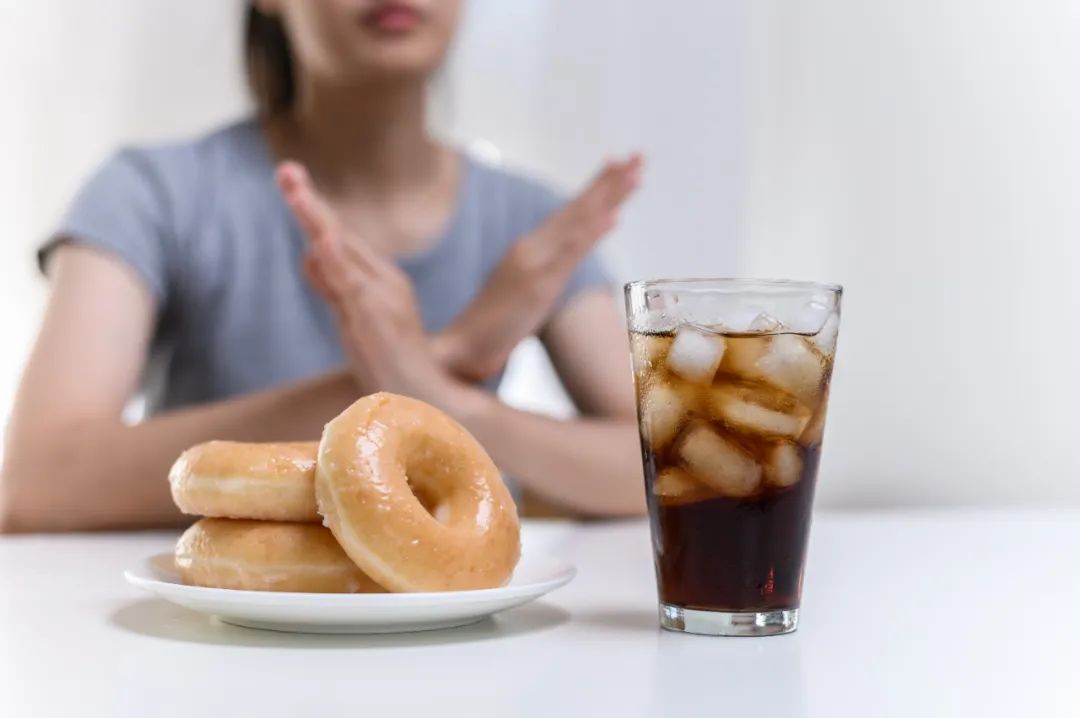
The defect of taste is only one aspect, and it is actually people themselves who really erase "sweet food happiness".
Because of the sweetness of diet coke, you can fool your tongue, but you can’t fool your intestines.
Smart intestines can tell whether you are drinking real sugar or sugar substitute.
If it is real sugar, the vagus nerve leading to the brain in the intestine will be activated, bringing satisfaction to the brain. If it is sugar substitute, the intestine will be indifferent and the brain will not feel the excitement it deserves. [3][4]
In this way, diet coke, which has both taste disadvantage and intestinal restriction, is no longer so happy.

Obviously, the tongue has tasted the sweetness, why should the intestines mind their own business and betray their senses?
With the deepening of scientific research, people gradually realize that the intestine is powerful beyond imagination.
Intestinal neural network is the primitive form of the early nervous system of multicellular organisms on earth 4 billion years ago. Spinal cord and brain are all based on intestinal nerves, and they have slowly emerged after a long evolution.
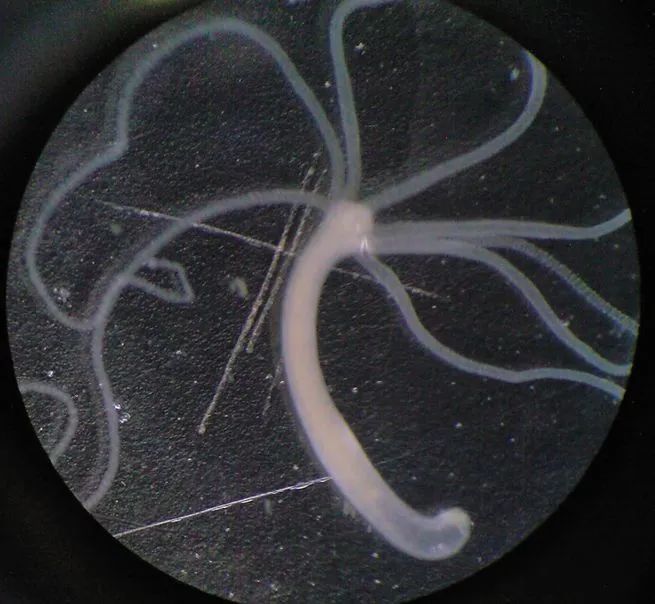
Source: Wikipedia | Anorectal Hydra
Until now, it still has strong autonomy-
Even without a brain, the intestine can operate independently and give orders to the body.
The intestine has its own neural network, which can always perceive the world in the human body.
Every small molecule in the rice, hormones floating in the blood, immune cells defending the body, and the whispering of intestinal bacteria are all under the "intelligent" monitoring of the intestine. [5]
After collecting a lot of physical information, the intestine will think for itself first. Only the information that it thinks is important will be reported to the brain for processing-the intestine is also called the "second brain" of human beings by academic circles.
Even the occurrence of many encephalopathy is closely related to the intestine.
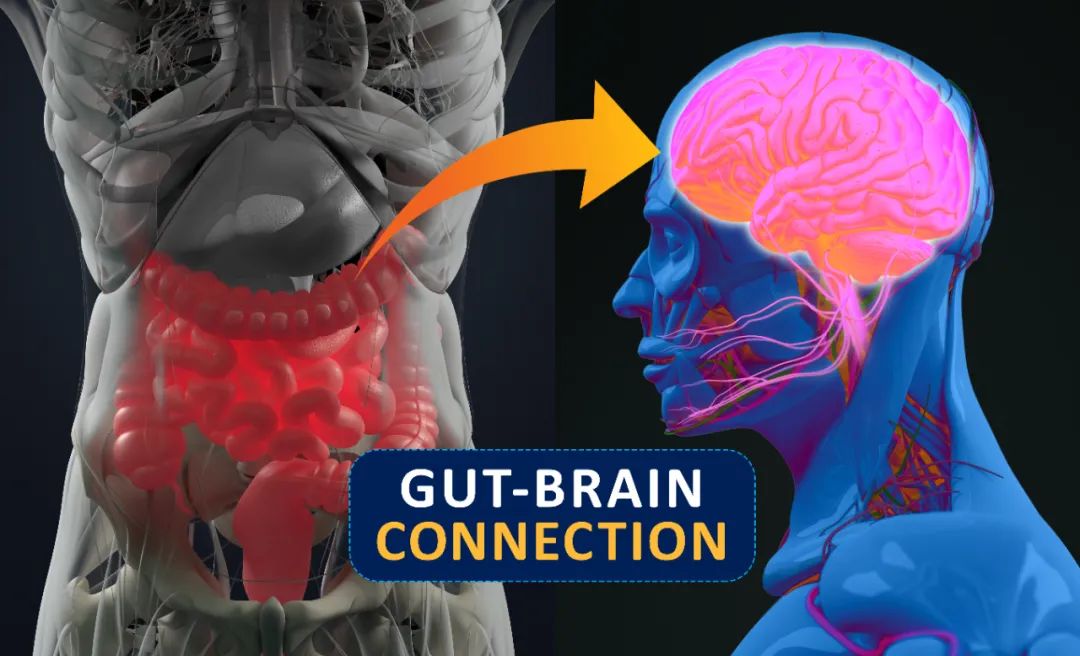
In 2017, Swedish scientists conducted a follow-up study of 380,000 people for nearly 40 years and found that "problem proteins" that can cause brain structural abnormalities will first appear in the intestines of patients with Parkinson’s disease, and "climb" all the way to the brain and affect neurons.
A paper published in the Journal of Anatomy also pointed out that when the intestinal flora is unbalanced and the immune system is affected, it can trigger a brain inflammatory reaction similar to that of patients with Alzheimer’s disease, and the same substances as those in the brain lesions can also be found in the intestinal tract.
Clinically, many people who seem to suffer from brain diseases also need gastrointestinal endoscopy and other digestive system tests. [6]
In daily life, the intestine exerts a subtle influence on you and me.

As the "second brain", the intestine controls many senses in our body.
If it is found that the alcohol content is particularly high, it will inform the brain’s "vomiting center" and tell you to "get it off your chest";
When attacked by pathogens, the signal of "discomfort" will be transmitted to the brain to remind you to pay attention to its health;
After a full meal, the intestine will send a signal that makes you feel satisfied and sleepy … [5]
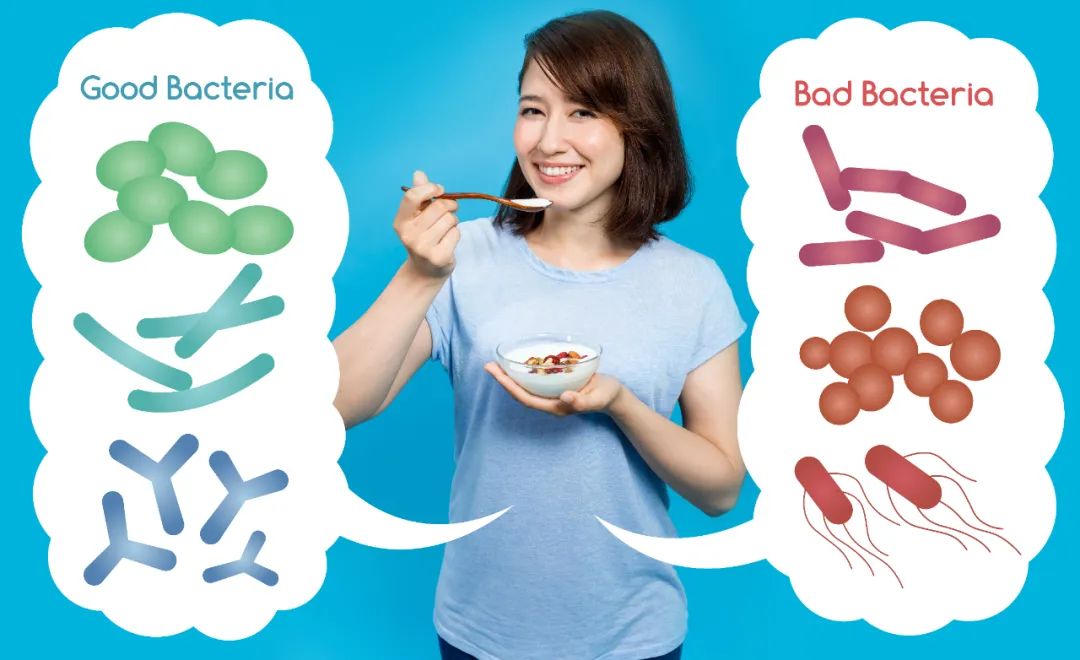
Even what you want to eat today may be the decision made by the intestine for you.
In 2022, researchers at the University of Pittsburgh in the United States found that intestinal microorganisms can control the appetite for different foods and affect the host’s dietary decision. [7]
The Pasteur Institute in France also found that hypothalamic neurons can sense the changes of intestinal microbial activities and regulate appetite and body temperature accordingly. [8]
In addition to these, microbes in the intestines may also quietly change your mental state. [9]
90% of the microorganisms in the human body live in the intestines. They can decompose some things that are difficult to digest and absorb, and feed back the obtained substances to us or generate various other substances.
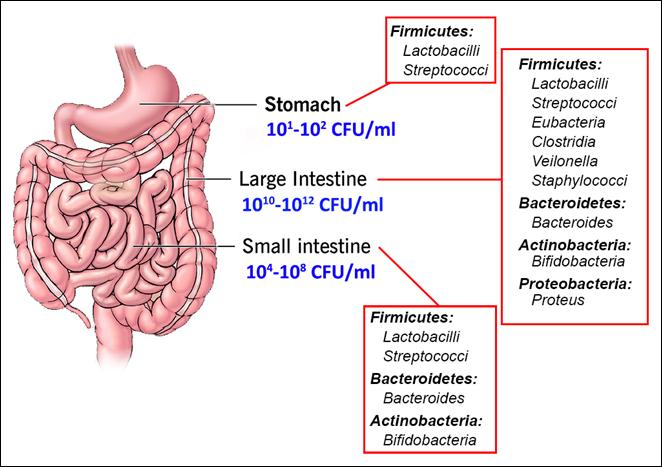
Source: Composition bacteria of intestinal microflora in CAS.
For example, about 90% of serotonin, a "happy substance" with the same name as dopamine and endorphins, is born and lives in the intestine, which almost affects all aspects of human mental activities.
Serotonin plays an important role, ranging from regulating mood, energy and memory to shaping outlook on life. When its concentration is low, your mood will be depressed. Common antidepressants are mainly used to maintain and increase serotonin levels. [5]
Long-term scientific research has once again confirmed the correlation between intestinal microorganisms and neuropsychiatric activities such as human emotions.
Researchers have found that people with depression, autism, anxiety and other diseases often have abnormal intestinal flora. [10]
After taking probiotics, patients’ anxiety and depression and cognitive ability will be improved, and even achieve similar effects as traditional antidepressant treatment. [11]
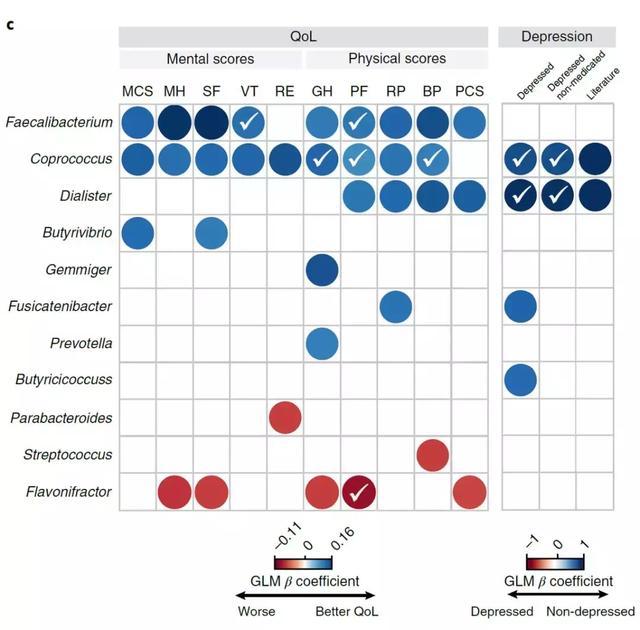
Source: The Neuroactive Potential of the Human Gut Microbiota in Quality of Life and Depression | Comparison of intestinal flora between patients with depression and non-patients.
From ruthlessly exposing the happy truth of zero-sugar cola to monitoring human diet, controlling emotional senses and accompanying the intestines of the earth’s creatures for more than 4 billion years, it constantly tells us with its unique operating mechanism:
Happiness is not equal, and being kind to the intestines is the true meaning of health.

[1] Documentary Young Science and Technology Workers Life Research Institute. Why is diet coke "bad"? [Z].
[2]Kuhn C, Bufe B, Winnig M, Hofmann T, Frank O, Behrens M, Lewtschenko T, Slack JP, Ward CD, Meyerhof W. Bitter taste receptors for saccharin and acesulfame K. J Neurosci. 2004 Nov 10; 24(45):10260-5. doi: 10.1523/JNEUROSCI.1225-04.2004. PMID: 15537898; PMCID: PMC6730199.
[3]Tan, HE., Sisti, A.C., Jin, H. et al. The gut–brain axis mediates sugar preference. Nature 580, 511–516 (2020).
[4] Zhao Sijia. My brain is so powerful [M]. Beijing United Publishing Company, 2022.
[5][ Germany] Julia Enders. Qian Wei. Small thoughts of intestines [M]. Jiangsu Phoenix Science and Technology Press, 2016.
[6] Li Zhenyu. Bad intestines, brain disease [N]. Life Times.
[7]Trevelline B K, Kohl K D. The gut microbiome influences host diet selection behavior[J]. Proceedings of the National Academy of Sciences, 2022, 119(17): e2117537119.
[8]Gabanyi I, Lepousez G, Wheeler R, Vieites-Prado A, Nissant A, Chevalier G, Wagner S, Moigneu C, Dulauroy S, Hicham S, Polomack B, Verny F, Rosenstiel P, Renier N, Boneca IG, Eberl G, Lledo PM. Bacterial sensing via neuronal Nod2 regulates appetite and body temperature. Science. 2022 Apr 15; 376(6590):eabj3986. doi: 10.1126/science.abj3986. Epub 2022 Apr 15. PMID: 35420957.
[9]Rumiana Tenchov, Information Scientist.How Your Gut Microbiome is Linked to Depression and Anxiety[Z].CAS
[10]Valles-Colomer, M., Falony, G., Darzi, Y. et al. The neuroactive potential of the human gut microbiota in quality of life and depression. Nat Microbiol 4, 623–632 (2019).
[11]PIRBAGLOU M, KATZ J, DE SOUZA RJ, et al. Probiotic supplementation can positively affect anxiety and depressive symptoms: a systematic review of randomized controlled trials[J]. Nutr Res, 2016, 36(9): 889-898
Produced by Netease Wenchuang Feidian Studio
Original title: "Diet Coke, why is it so bad? 》
Read the original text